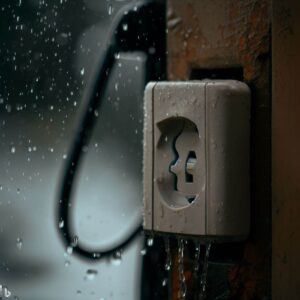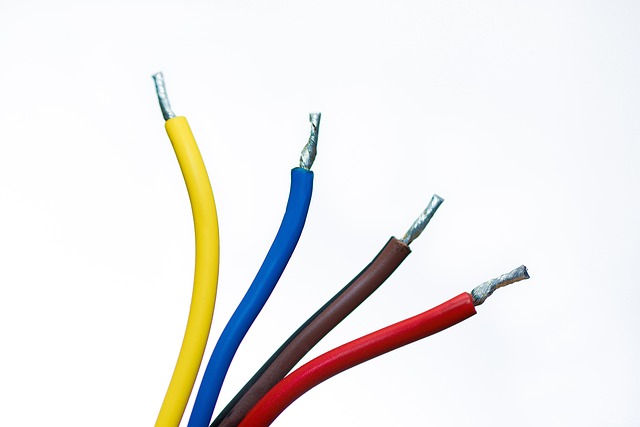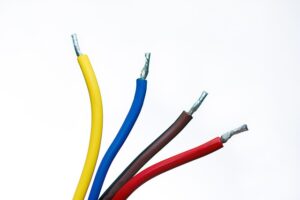Electrical connections play a vital role in our daily lives, powering everything from household appliances to industrial machinery. However, these connections are prone to wear and tear, which can lead to malfunctions or even safety hazards.
Regular maintenance is crucial to ensure their optimal performance, and one effective maintenance practice is spraying appropriate solutions on electrical connections.
In this article, we will explore the various types of sprays available for electrical connections, recommended applications for different scenarios, safety precautions, and troubleshooting common issues.

Types of Sprays for Electrical Connections
Contact Cleaners
Contact cleaners are specifically formulated to remove dirt, grime, and contaminants from electrical connections.
They help restore conductivity and improve the overall performance of the connections. These cleaners come in aerosol or spray bottle form, making application easy and convenient.
It is important to choose contact cleaners that are safe for use on electrical components and have a fast-drying formula.
Anti-Corrosion Sprays
Corrosion is a common enemy of electrical connections, particularly in humid or coastal areas. Anti-corrosion sprays provide a protective coating that prevents the formation of rust or corrosion on metal contacts.
They typically contain corrosion inhibitors that create a barrier against moisture and environmental elements, ensuring the longevity and reliability of electrical connections.
Read also my article: The WD-40 Dilemma: Is it Safe to Use on Your Electric Motor?
Dielectric Sprays
Dielectric sprays are designed to insulate and protect electrical connections from moisture, dust, and other contaminants.
They have high dielectric strength, which means they can withstand high voltages without conducting electricity.
Dielectric sprays are often used in outdoor or exposed environments where connections are susceptible to moisture infiltration.
Oxidation Inhibitor Sprays
Oxidation can hinder the performance of electrical connections, leading to voltage drops or intermittent failures.
Oxidation inhibitor sprays are formulated to prevent or slow down the oxidation process, ensuring optimal conductivity.
These sprays typically leave a thin protective layer on the connections, safeguarding them against oxidation and improving their lifespan.
Silicone Lubricant Sprays
Silicone lubricant sprays are primarily used to reduce friction and enhance the smooth operation of moving electrical components.
They can also provide a moisture-resistant coating, preventing the entry of water or moisture into the connections.
Silicone lubricants are often used in automotive applications, such as lubricating spark plug boots or distributor caps.
Check this “WD-40 Specialist Silicone Lubricant with Smart Straw Sprays 2 Ways”:
Factors to Consider Before Choosing a Spray
Before selecting a spray for your electrical connections, consider the following factors:
1. Environmental Conditions: Assess the environment in which the connections are located. Is it exposed to moisture, extreme temperatures, or corrosive chemicals? This information will help you choose a spray with the appropriate protective properties.
2. Type of Electrical Connections: Different types of connections require specific sprays. For instance, automotive connections may benefit from anti-corrosion sprays, while outdoor connections might require dielectric sprays for moisture protection.
3. Compatibility with Materials Used: Ensure that the spray you choose is compatible with the materials used in your electrical connections. Some sprays may damage or degrade certain types of plastics or rubbers.
4. Application Method: Consider the ease of application and the specific requirements of your connections. Some sprays are available in aerosol form for precise and easy application, while others may require a brush or applicator.
Safety Precautions and Best Practices
It is essential to follow safety precautions when working with electrical connections and sprays:
A. Electrical Safety Guidelines
- Always disconnect power before working on electrical connections.
- Use insulated tools and wear appropriate personal protective equipment (PPE) to minimize the risk of electrical shock.
B. Proper Handling of Sprays
- Read and follow the manufacturer’s instructions and safety guidelines for each spray.
- Use sprays in well-ventilated areas or wear a respirator if necessary.
- Keep sprays away from open flames or sources of ignition.
C. Ventilation and Personal Protective Equipment
- Ensure proper ventilation when working with sprays to prevent inhalation of fumes or vapors.
- Wear gloves, safety glasses, and a protective apron to avoid skin contact or eye irritation.
D. Disposal of Used Sprays
- Dispose of used sprays according to local regulations and guidelines.
- Follow any specific disposal instructions provided by the manufacturer.
Troubleshooting Common Electrical Connection Issues
A. Corrosion
- Identify signs of corrosion, such as greenish deposits or poor conductivity.
- Clean the affected areas with a contact cleaner and apply an anti-corrosion spray to prevent further damage.
B. Oxidation
- Detect oxidation by observing signs of discoloration or intermittent connections.
- Use oxidation inhibitor sprays to protect and restore conductivity to the connections.
C. Poor Conductivity
- If connections exhibit poor conductivity, clean them thoroughly with a contact cleaner and reapply an appropriate spray to enhance conductivity.
D. Moisture-Related Issues
- For connections exposed to moisture, apply dielectric sprays to provide a protective barrier against moisture infiltration.
Conclusion
Regular maintenance of electrical connections is essential to ensure optimal performance and longevity. By using the right sprays for different types of connections, such as contact cleaners, anti-corrosion sprays, dielectric sprays, oxidation inhibitor sprays, and silicone lubricant sprays, you can enhance conductivity, protect against corrosion and moisture, and reduce the risk of malfunctions.
Remember to follow safety precautions and troubleshoot common issues promptly to keep your electrical connections in top shape.
Want to learn more about electricity? Check my YouTube channel!
Are You An Electrical Engineer or Electrician?
Install my Free On Google Play Now! It’s 100% Free
The staff I recommend (Amazon Affiliate Links to products I believe are high quality):
- Economy 120 Volt/60Hz AC Power Source – Step-Down Voltage & Frequency Converters 1800W
- UNI-T Digital Multimeter Tester UT139C
- 50-Amp Extension Cord for RV “100ft”
- Voltage Stabilizer 110/220v
- Hair Dryer “best selling“
- TOSHIBA EM131A5C-BS Countertop Microwave Ovens
Disclaimer: This contains affiliate links to Amazon products. I may earn a commission for purchases made through these links.


